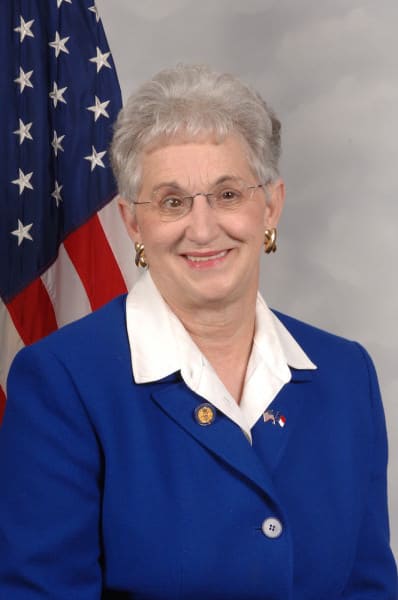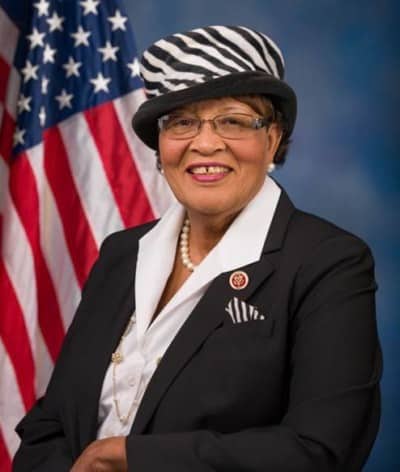

When Virginia Foxx was first elected to U.S. Congress in 2004, she wasn’t sure she wanted to be on the education committee. Now, she’s the third-most senior member of the House Education and the Workforce Committee.
“I frankly wasn’t hankering to get on the committee, because in the [state] legislature, it was very difficult to get a lot done on the education committee,” she said. “I did get significant statewide bills passed, but it was a lot of hard work, so I thought I wanted to go in a different direction. But when the chairman asks you, it’s a little hard to say no.”
The Republican from Watauga County certainly had the credentials. She had worked as a sociology instructor at Appalachian State University and as a teacher at Caldwell Community College, and then in various administrative positions at ASU and as president of Mayland Community College. She also served on the Watauga County Board of Education for 12 years.
An alumna of UNC-Chapel Hill, Foxx was a North Carolina senator for 10 years before being elected to U.S. Congress. Now, Foxx is the chairwoman of the House’s subcommittee on higher education. She also serves as the vice chair of the House Rules committee. She’s busy — she joked that she sleeps on stacks of materials to absorb them by osmosis.
This session, Foxx is trying to push the Student Success Act, a rewrite of No Child Left Behind, through the House. It passed the House education committee in February, but has yet to hit the House floor for a vote. Foxx said it likely won’t be taken up before Congress’ Easter recess, which is March 30 to April 10.
No Child Left Behind, which became law in 2002, led to increased standardized testing and more accountability for schools — particularly on the performance of students who are from low-income families, who are racial minorities, who have limited English proficiency, and who have disabilities.
“The idea behind No Child Left Behind was, ‘let’s give education to all the kids and make sure that we’re helping them,’ and that’s been the mantra of public education for all those years, but we haven’t actually delivered it,” Foxx said. “I think what happened in the implementation is the bureaucrats took control.”
This time around, Foxx hopes Congress can restore local control and stop top-down mandates. Parents, she said, should have enough meaningful information to hold schools accountable themselves.
Rep. Alma Adams, the other North Carolinian on the House education committee who I spoke to last month, had expressed concern about the part of the bill that would allow Title I funds (federal money for low-income children) to follow students to the public school of their choice, including a charter school. She said diverting that money will hurt the poorest students who don’t transfer schools.
But Foxx sees it much differently. She said the provision in the bill is in place to tie the funding to the child who needs help.
“If the child has an issue with reading skills, then the child is the one who needs the help, not the school, not the larger population,” she said. “By saying oh no, you shouldn’t make the funding portable, then you’re saying, we want to maintain the status quo by saying we should give the money to the school.”
According to Politico, the Student Success Act has not only garnered criticism from the left, but from some on the right as well, who think the bill doesn’t go far enough. Still, Foxx said the bill’s provisions would be significant to North Carolina.
“They don’t want people in Washington who have never served in a classroom telling teachers how to do their jobs. They want to see parents, I think, empowered.”
“[North Carolina], along with every other state, is worried about the emphasis on testing and they want to get away from it,” Foxx said. “They don’t want Washington telling them how to spend the money. They don’t want people in Washington who have never served in a classroom telling teachers how to do their jobs. They want to see parents, I think, empowered.”
Foxx is also concerned about teacher pay and retention, even saying that she wishes K-12 teachers were paid more than college professors because they have the bigger challenges.
“When I was in the legislature in North Carolina, I voted to pay teachers more because I don’t think we pay them enough, and I don’t think we respect them enough,” she said. “I think we should do everything we can to attract the very best people in education, pay them well, and then give them the authority to do their jobs.”


